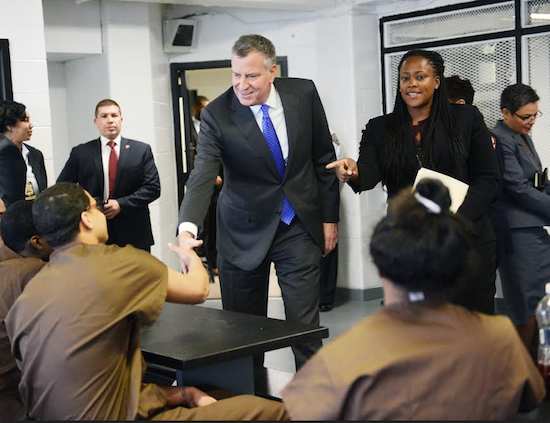NYC jails end solitary confinement of teen inmates

After touring New York City’s troubled Rikers Island jail complex for the first time since taking office, Mayor Bill de Blasio on Wednesday announced the end of the longstanding practice of putting 16- and 17-year-old inmates who break jailhouse rules in solitary confinement.
De Blasio made the announcement while speaking to reporters in the chapel of the Rikers facility that houses young inmates — the same facility at the center of a scathing Department of Justice report that found teenage inmates were too often placed in 23-hour confinement and beaten by jail guards.
Instead of isolation, young inmates who break jailhouse rules will now be sent to two new units where they’ll receive a range of services from one-on-one therapy to programming that teaches decision making, de Blasio said.
